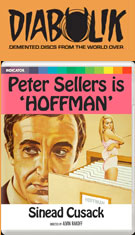



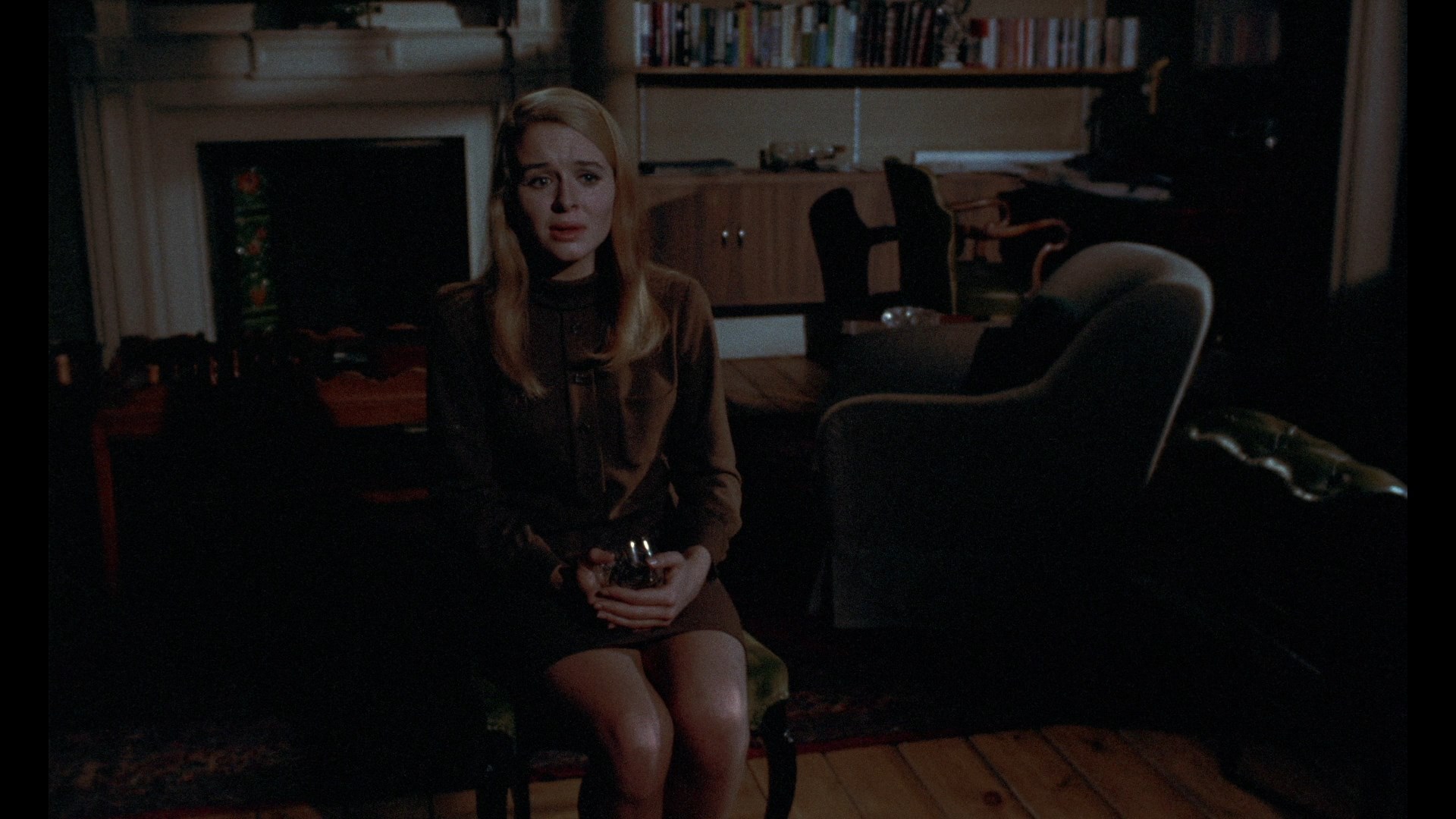 known for his legendary slapstick work,
known for his legendary slapstick work,  Peter Sellers took a number of odd detours over the course of his career attempting to bend the nature of what comedy films even were. Obviously Being There is the most famous example, while the stranger ones can be found scattered throughout the 1970s. Then there's Hoffman, the third go-round for writer Ernest Gébler for a story first presented on British TV's Armchair Theatre (as Call Me Daddy) and then turned into a novel, Shall I Eat You Now? Essentially a drama with uncomfortable elements that make it a somewhat kinder cousin to films like Tie Me Up! Tie Me Down! and Oleanna, the film features Sellers' most subdued dramatic performance and proved so discomfiting for the actor that he approached EMI Films head Bryan Forbes about having it destroyed and remade more to the star's liking. Obviously the attempt didn't succeed, and while the film remains something of a neglected oddity in Sellers' career, it's a very rewarding and fascinating experience if viewed in the right spirit with a focus on power dynamics and gender tensions that's still extremely relevant today.
Peter Sellers took a number of odd detours over the course of his career attempting to bend the nature of what comedy films even were. Obviously Being There is the most famous example, while the stranger ones can be found scattered throughout the 1970s. Then there's Hoffman, the third go-round for writer Ernest Gébler for a story first presented on British TV's Armchair Theatre (as Call Me Daddy) and then turned into a novel, Shall I Eat You Now? Essentially a drama with uncomfortable elements that make it a somewhat kinder cousin to films like Tie Me Up! Tie Me Down! and Oleanna, the film features Sellers' most subdued dramatic performance and proved so discomfiting for the actor that he approached EMI Films head Bryan Forbes about having it destroyed and remade more to the star's liking. Obviously the attempt didn't succeed, and while the film remains something of a neglected oddity in Sellers' career, it's a very rewarding and fascinating experience if viewed in the right spirit with a focus on power dynamics and gender tensions that's still extremely relevant today.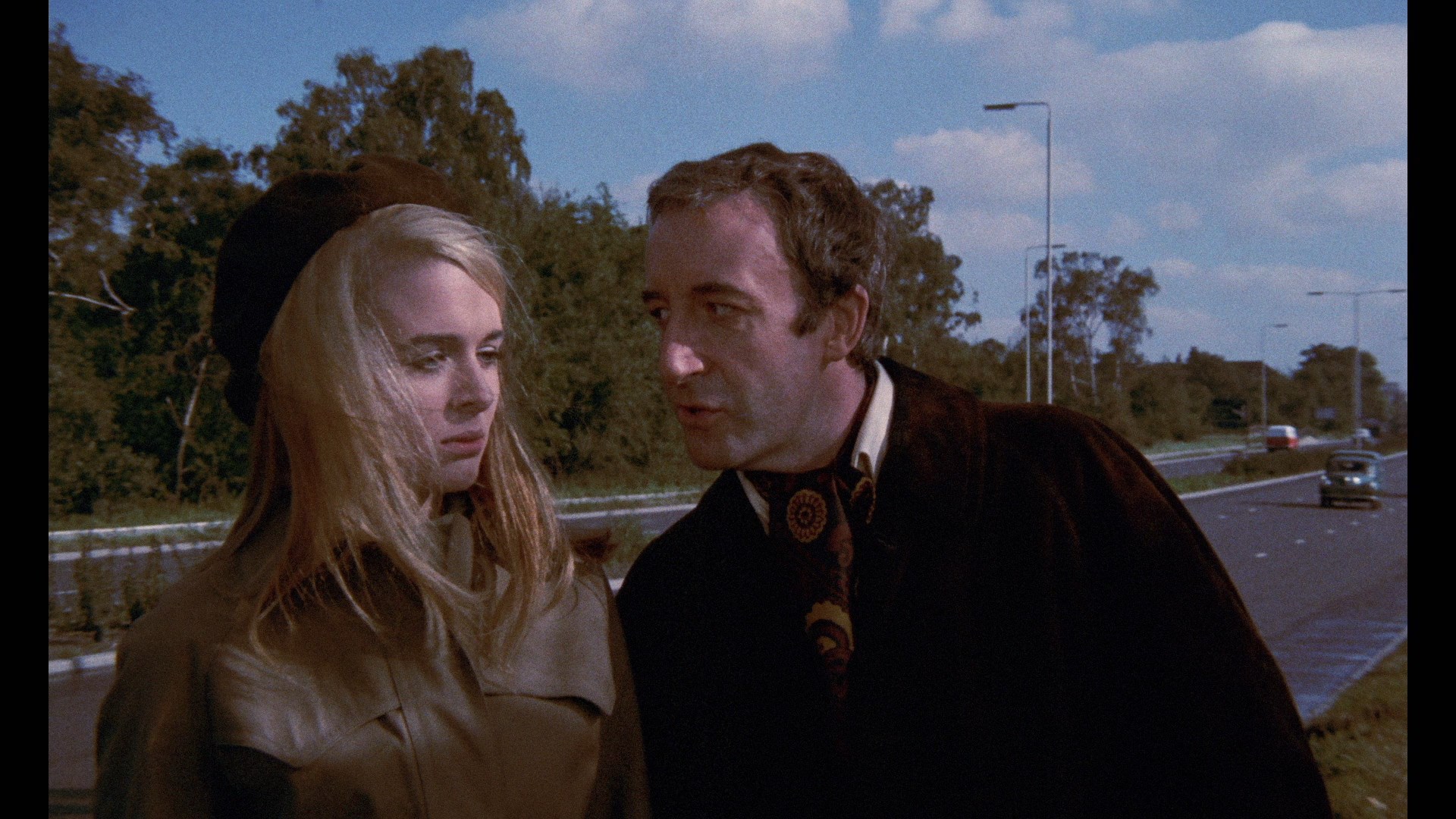 something that she ultimately figures out how to use to her advantage as they each get the upper hand on each
something that she ultimately figures out how to use to her advantage as they each get the upper hand on each 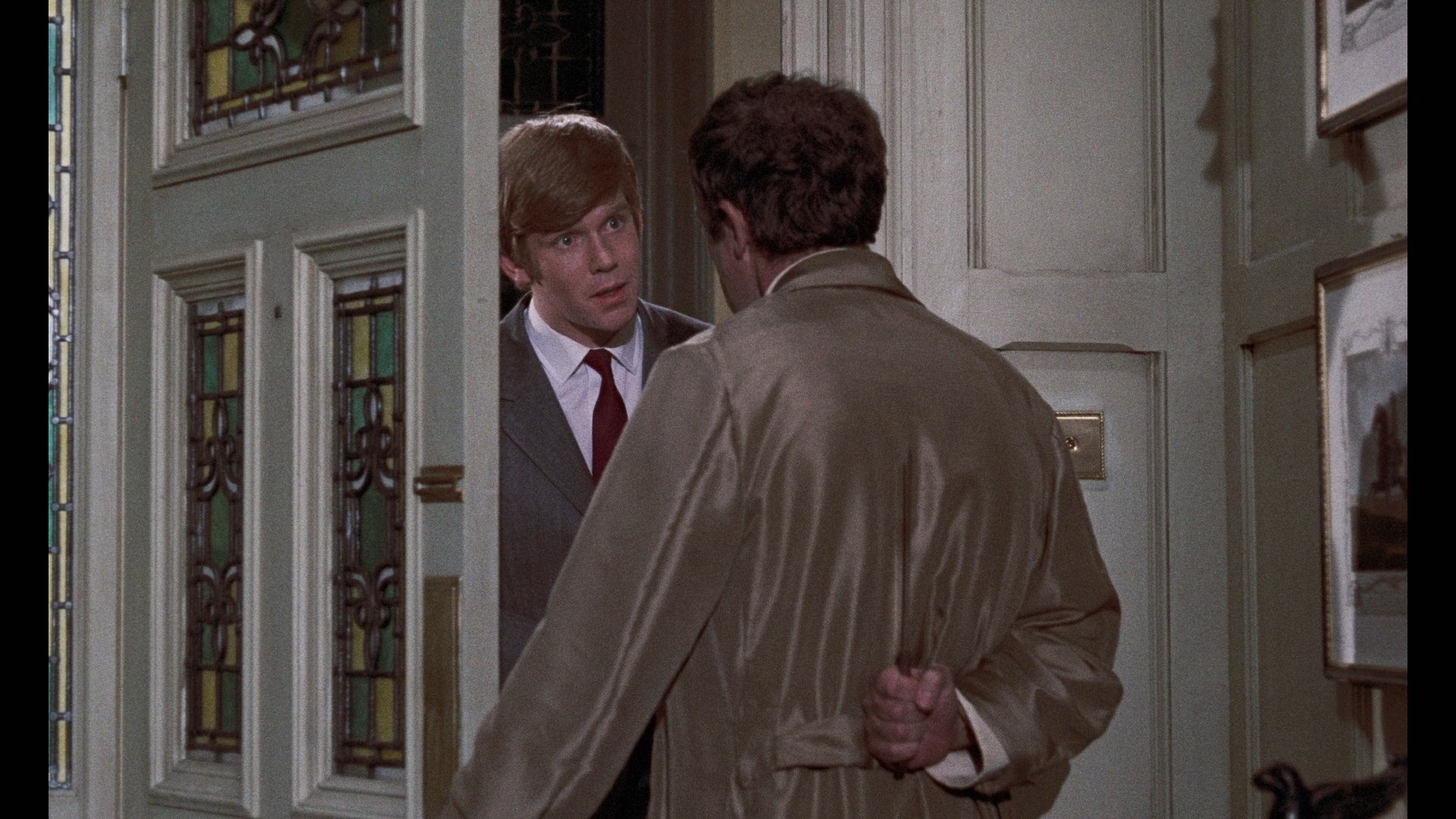 other. Gradually layers of Hoffman's misogynistic persona start to reveal something more shaded underneath, but Janet's lessons about the world and its treatment of young women are still just beginning.
other. Gradually layers of Hoffman's misogynistic persona start to reveal something more shaded underneath, but Janet's lessons about the world and its treatment of young women are still just beginning.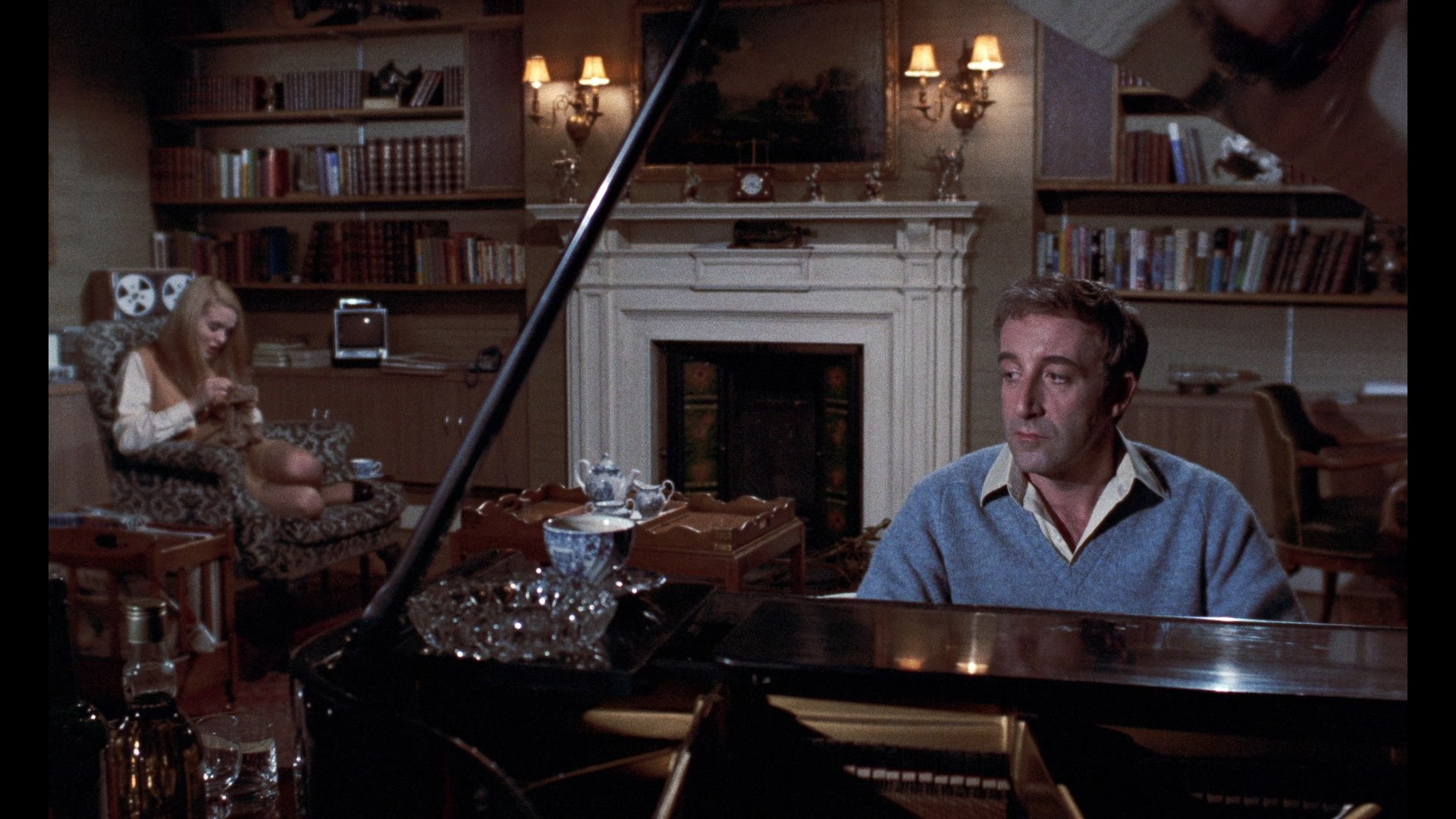 The LPCM 1.0 mono track (with optional English SDH subtitles) is also in great shape. Director Alvin Rakoff appears in a somewhat sparse selected scenes commentary (24m52s) and an interview featurette, "Strange Relationship" (21m34s), which cover the deliberate pacing of the film,
The LPCM 1.0 mono track (with optional English SDH subtitles) is also in great shape. Director Alvin Rakoff appears in a somewhat sparse selected scenes commentary (24m52s) and an interview featurette, "Strange Relationship" (21m34s), which cover the deliberate pacing of the film, 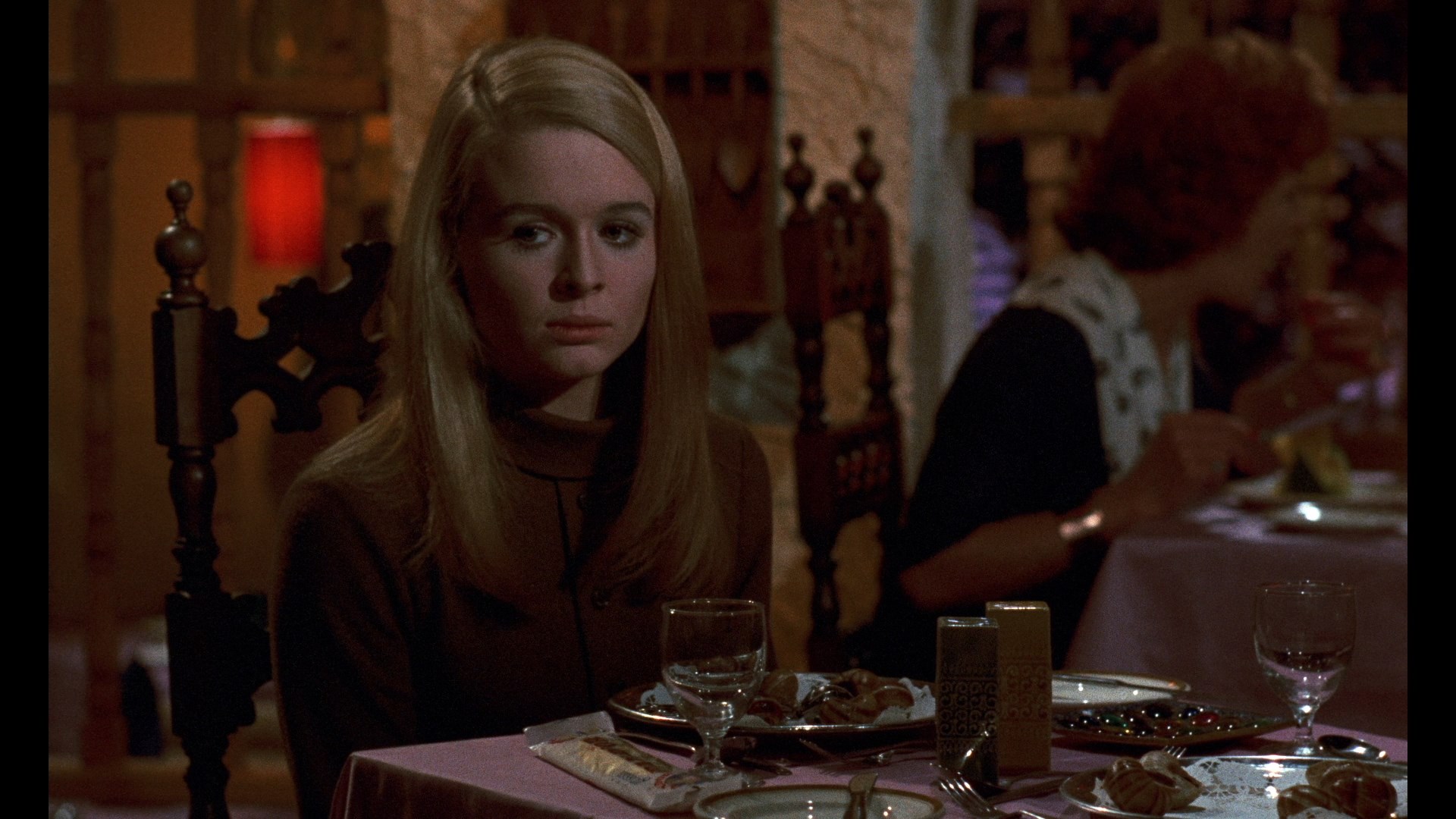 Sellers' vocal denunciation of the finished product, the politically incorrect nature of the subject matter, his personal friendship with the actor, Sellers' aversion to the color purple, Gébler's attempts to have Rakoff fired, and the affair the two stars had during filming. Most interesting is the discussion of how to portray the Hoffman character, who was more overtly villainous in the TV version (played by Donald Pleasence) with Sellers initially wanting to go in a far more comedic direction before taking the straight route we have now. "An Underexposed Film" (27m56s) is one of those great below-the-line crew interviews Indicator does so well, in this case featuring focus puller Eddie Collins (2022) recalling his working relationship with cinematographer Gerry Turpin (The Wrong Box, Deadfall), his positive impressions of his director, and Sellers' occasionally difficult side. Finally in "Home Improvements" (5m42s), draughtsman Terry Ackland-Snow briefly recalls the "TV play" approach of the film and shooting the lion's share of it inside Hoffman's house. Also included are the theatrical trailer in HD, a Trailers from Hell version presented by screenwriter Larry Karaszewski, and separate galleries for production stills, promotional material, and the final screenplay. The usual dense insert booklet comes with a new essay by John Rain, archival interviews with Sellers and Cusack, an overview of Gébler’s multiple versions of the story, and sample critical reactions.
Sellers' vocal denunciation of the finished product, the politically incorrect nature of the subject matter, his personal friendship with the actor, Sellers' aversion to the color purple, Gébler's attempts to have Rakoff fired, and the affair the two stars had during filming. Most interesting is the discussion of how to portray the Hoffman character, who was more overtly villainous in the TV version (played by Donald Pleasence) with Sellers initially wanting to go in a far more comedic direction before taking the straight route we have now. "An Underexposed Film" (27m56s) is one of those great below-the-line crew interviews Indicator does so well, in this case featuring focus puller Eddie Collins (2022) recalling his working relationship with cinematographer Gerry Turpin (The Wrong Box, Deadfall), his positive impressions of his director, and Sellers' occasionally difficult side. Finally in "Home Improvements" (5m42s), draughtsman Terry Ackland-Snow briefly recalls the "TV play" approach of the film and shooting the lion's share of it inside Hoffman's house. Also included are the theatrical trailer in HD, a Trailers from Hell version presented by screenwriter Larry Karaszewski, and separate galleries for production stills, promotional material, and the final screenplay. The usual dense insert booklet comes with a new essay by John Rain, archival interviews with Sellers and Cusack, an overview of Gébler’s multiple versions of the story, and sample critical reactions.![]()